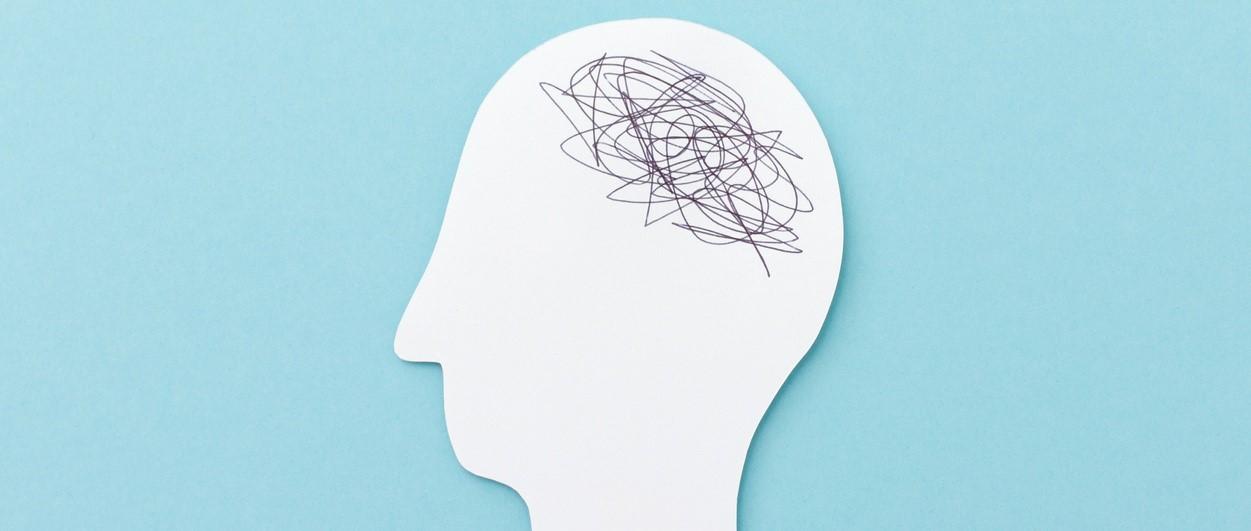
Young-onset dementia is linked to health and lifestyle, as well as genetics
Peer reviewed by Dr Krishna Vakharia, MRCGPAuthored by Amberley DavisOriginally published 12 Feb 2024
- DownloadDownload
- Share
Many of us fear dementia, not to mention developing it while we're young, but little is known about whether we can prevent it. However, a breakthrough study has identified 15 significant factors linked to young-onset dementia, which develops before the age of 65. And many of these are influenced by your health and lifestyle choices.
With around 370,000 people developing young-onset dementia each year worldwide, experts believe this research brings us closer to finding ways to prevent, identify, and treat this devastating disease.
In this article:
Continue reading below
Risk factors for young-onset dementia
"Young-onset dementia has a very serious impact, because the people affected usually still have a job, children, and a busy life." - Dr Stevie Hendriks, researcher for the UK Biobank cohort study.
It’s thought that around 70,800 people in the UK and 200,000 in the US are living with young-onset dementia1,2. These people are all under the age of 65 and many are in their forties and fifties, although people have been diagnosed as young as 30.
The UK Biobank cohort study
The UK Biobank cohort study3 included 356,052 people younger than 65 across the UK who were assessed and followed from 2006 through to 2021 or until they reached 65. Over this time, 485 developed young-onset dementia. The research identified 39 risk factors associated with developing young-onset dementia.
These findings challenge the idea that genetics are the sole cause.
Of the 39 risk factors, 15 were found to be significantly associated with developing dementia before the age of 65.
Many of these are related to your health and lifestyle, meaning they may be modifiable – changed or prevented.
4 new risk factors were found that had never been identified before - vitamin D deficiency, orthostatic hypotension, high C-reactive protein (CRP) levels, and social isolation.
This study may help lay the groundwork for new advice around prevention.
Not all these risk factors can directly cause young-onset dementia. By studying how each factor is linked to this condition, scientists can learn more about prevention, diagnosis, and treatment.
Professor David Llewellyn of the University of Exeter, one of the researchers, says: "This breakthrough study is the largest and most robust of its kind ever conducted. For the first time it reveals that we may be able to take action to reduce risk of this debilitating condition, through targeting a range of different factors".
Genetics - out of our control
Before this research, it was known that genetics play a big part in both dementia and young-onset dementia.
Specifically, carrying a gene called APOE4 makes a protein called apoliprotein E. Having two of these proteins has been linked to cell death in the brain, which in turn increases your chances of dementia.
According to study researcher Dr Hendriks, it's often assumed that genetics alone causes young-onset dementia: "But for many people we don't actually know exactly what the cause is. This is why we also wanted to investigate other risk factors in this study."
Continue reading below
Socioeconomic status and education
Two factors relating to society and your environment were identified as reducing cognitive reserve, which describes your brain's capacity to think, problem-solve, and improvise as you age.
Having a lower cognitive reserve is directly linked to a higher risk of dementia symptoms at a younger age.
These factors also tend to be linked:
Having a less formal education - it's thought that this may affect your familiarity with the items on the cognitive tests used to diagnose dementia.
Having lower socioeconomic status - is often linked to having a lower-quality education.
Social isolation
Social isolation leads to loneliness, and this is a major and well-established risk factor for dementia in over 65s. In fact, in this age group it's estimated that social isolation increases your chances of dementia by 50%4.
Loneliness is more prevalent in the elderly community, but the UK Biobank cohort study reveals that being socially isolated can also lead to dementia in mid-life or possibly younger.
Exactly how this works unknown, but it's thought that social interactions use and exercise your brain in a way that helps to keep it healthy.
Continue reading below
Associated health problems
Several factors identified in the study are health problems that appear to be linked with a higher chance of young-onset dementia.
The below were found to be the most significant, but lifestyle habits like smoking, sleep problems, and long-term stress were also mentioned by researchers.
We may be in the early stages of understanding them and how these associations work, but for each health issue there is existing advice on the lifestyle changes you can make.
Hearing problems
Experts think that hearing loss in later life may be the highest potentially modifiable risk factor for developing dementia, and it's now found to be significant for under 65s too. Hearing is an essential part of brain health and stimulation.
Possible lifestyle changes: The best way to protect your hearing is to avoid or limit exposure to very loud noise. If you already have some hearing loss, using hearing aids can reduce your chances of developing dementia5.
Getting your hearing checked regularly from age 40, as you may do for your sight, can help detect and manage hearing issues at an early stage. This is especially important if your working environment is noisy or may effect your hearing.
Vitamin D deficiency
It's thought that vitamin D protects us against brain degeneration and viral infections. These infections may increase your risk of dementia, according to other studies6.
Possible lifestyle changes: The UK government recommends we all take vitamin D supplements between October and April, when it's difficult to obtain enough from sunlight.
High C-reactive protein (CRP) levels
Our liver produces more of a protein called C-reactive protein (CRP) when there is inflammation in the body. Inflammation causes cell damage that, according to the study findings, may be a factor in young-onset dementia.
Possible lifestyle changes: While short-term inflammation is a natural function of the body, long-term inflammation can be caused by certain unhealthy foods. Following an anti-inflammatory diet may reduce associated health risks.
Orthostatic hypotension
Orthostatic hypotension is a form of low blood pressure that happens when standing after sitting or lying down. The relationship between this and young-onset dementia appears to be two-ways.
On the one hand, orthostatic hypotension can lead to brain damage that results in dementia, on the other, the researchers noted that it may also be an early symptom of Parkinson's dementia or Lewy body dementia. They think that this can sometimes become an issue for someone years - or even decades - before they're diagnosed with young-onset dementia.
Possible lifestyle changes: Orthostatic hypotension can have different causes, and you'll need a doctor to help find the cause in order to treat the problem. For example, it could be due to dehydration, in which case you'll be be advised to drink more water.
Patient picks for Memory loss and dementia
Stroke
The study found that people who had previously had a stroke were more likely to develop young-onset dementia. This is because having a stroke damages the brain.
Possible lifestyle changes: Current stroke prevention advice includes quitting smoking, following a healthy diet, having regular blood pressure and cholesterol checks, maintaining a healthy weight, being physically active, and drinking alcohol in moderation.
Heart disease
Having heart disease makes you more likely to have a stroke, which can cause brain damage and vascular dementia - when a lack of blood supply to the brain causes brain cells to die off.
Possible lifestyle changes: Not all types of heart disease are preventable, for example genetics can play a role. But some lifestyle habits can increase your risk of heart disease - such as being overweight, smoking, eating an unhealthy diet, not exercising enough, drinking too much alcohol, and taking other recreational drugs.
Diabetes
It's known that type 2 diabetes, which can cause vascular brain injury, is associated with having a higher risk of dementia - a 60% increased risk according to some studies7. This latest research finds diabetes to be a significant factor for young-onset dementia as well.
Possible lifestyle changes: There's a wealth of information on preventing and managing type 2 diabetes, the main strategies involving healthy weight loss, diet, and exercise.
Alcohol use disorder
Alcohol use disorder (AUD) is the medical term for alcohol addiction, dependence and abuse. It's when you cannot stop or control your drinking despite the negative effects it's having on your health and life in general.
The study found that people diagnosed with AUD were more likely to develop young-onset dementia - specifically alcohol-related 'dementia'.
Experts have known that AUD can lead to dementia in over 65s for some time, because excessive and ongoing alcohol consumption can damage the brain, including the part responsible for your working memory8.
Possible lifestyle changes: Unlike other forms of dementia, with the right treatment, alcohol-related 'dementia' may be stopped or even improved. People with this condition will likely need several methods of support, including special prescription drugs, thiamine (vitamin B1) tablets, talking therapies8 and support services to help quit alcohol, such as We Are With You.
Reverse causation
Not every health problem associated with the disease in this study is a clear risk. Reverse causation means that a risk factor could be a symptom - and not the cause - of young-onset dementia.
Yet, they may appear to be risk factors because they become noticeable before the dementia becomes obvious and is diagnosed. These three factors fall into this category.
Depression
This study highlighted that depression and young-onset dementia often go hand-in-hand, as it does with other forms of dementia.
According to Alzheimer's Society9, it's more likely that people develop depression as a result of the difficulties and worries of living with dementia, and it's often diagnosed when a person is in the early stages of the disease.
Experts also note that the diseases that can cause dementia can also sometimes cause depression.
No alcohol use
It may seem strange that not drinking alcohol was found to be linked with young-onset dementia, especially as alcohol use disorder is a risk factor.
However, the researchers noted that many people stop drinking after they develop memory loss. This is known as the 'healthy drinker effect'.
Weak hand grip strength
Having a lower hand grip strength isn't itself a condition, but it can be a sign that your muscles are wasting. This can be a symptom of dementia, but it could also be caused by disuse of the hands and fingers, or other conditions such as arthritis, peripheral neuropathy, or multiple sclerosis (MS).
The UK Biobank cohort study is an important piece of research, but more data is needed on young-dementia. For example, it's important to note that the study is overrepresented by white people. The results might not be as accurate for minority ethnic communities, where cases of young-onset dementia are higher1.
Professor Llewellyn says: "There's still much to learn in our ongoing mission to prevent, identify, and treat dementia in all its forms in a more targeted way."
Further reading
Article history
The information on this page is peer reviewed by qualified clinicians.
12 Feb 2024 | Originally published
Authored by:
Amberley DavisPeer reviewed by
Dr Krishna Vakharia, MRCGP

Ask, share, connect.
Browse discussions, ask questions, and share experiences across hundreds of health topics.

Feeling unwell?
Assess your symptoms online for free
